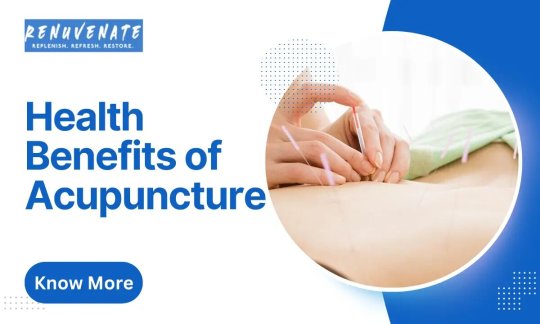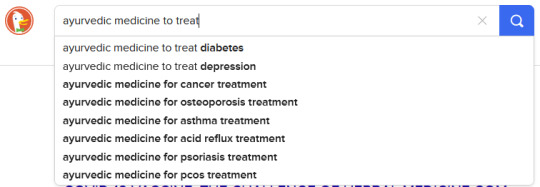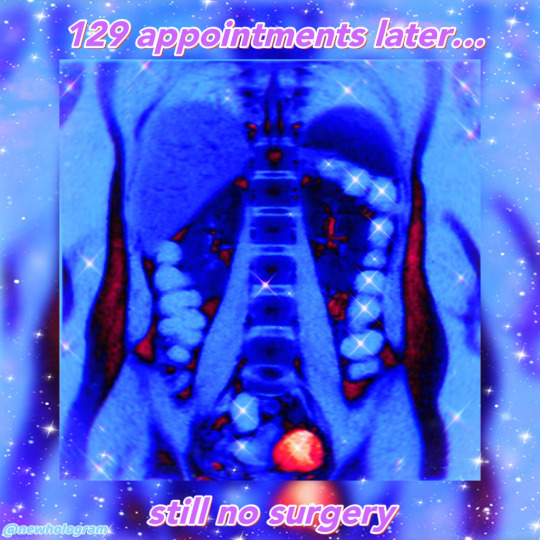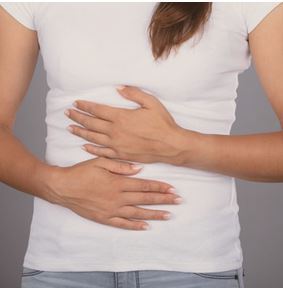#acupuncture benefits for pain
Text
Top Health Benefits of Acupuncture

Website: renuvenate.co.uk
Acupuncture aims to balance a person's qi by inserting microscopic needles into the skin, activating the body's healing processes, and restoring harmony. It is based on the principle that qi flows through meridians and can be blocked by toxins, stress, trauma, hormones, and food. Acupuncture is used for pain relief, general health enhancement, and promoting the body's innate healing capacity.
Acupuncture is a safe and effective treatment for various illnesses, including pain, chronic pain, and menopausal symptoms. It increases endorphin levels, which help reduce pain, unlike opioid medications, which have adverse effects and addiction.
Acupuncture is known for its long-lasting benefits, such as improved AMH hormone levels in PCOS patients. Patients should consult licensed acupuncturists for safe and effective treatment. Acupuncture offers numerous health benefits, including stress reduction, chronic pain relief, digestive problems, immune system enhancement, sleep improvement, and migraine treatment.
It physically rewires the brain, reducing stress and anxiety, and improving the nervous system's balance. Acupuncture also promotes the development of natural killer cells, enhancing blood flow and intestinal activity. Additionally, it may be superior to Western medicine in treating sleeplessness due to its ability to reduce stress and anxiety. Read Top 7 Potential Health Benefits of Acupuncture, to learn more. Visit Renuvenate to book your acupuncture therapy session.
#acupuncture benefits#health benefits of acupuncture#acupuncture treatment#acupuncture therapy#long term benefits of acupuncture#acupuncture benefits for pain#acupuncture in Bromley#traditional acupuncture
1 note
·
View note
Text
Acupuncture for Back Pain in London
If you’re considering acupuncture for back pain, make sure you choose a practitioner who is qualified and experienced. Don’t hesitate to ask questions about their training and experience in treating back pain. A good practitioner will be happy to explain the process and help you feel comfortable.
1 note
·
View note
Text
Differential Diagnosis | Pattern Of Disharmonies in Diverticulitis
Excerpt: In treating diverticulitis, a condition marked by inflammation of the digestive tract, Traditional Chinese Medicine (TCM) employs a holistic approach. Acupuncture, involving specific points like LI-4 and ST-36, addresses patterns such as Damp-Hea
Diverticulitis is a condition characterized by inflammation or infection of small pouches (diverticula) that can form in the lining of the digestive system, particularly in the colon. Traditional Chinese Medicine (TCM) utilizes a holistic approach to address this condition by identifying patterns of disharmony and using acupuncture and herbal formulas accordingly.
Examples of possible patterns…

View On WordPress
#Abdominal pain#Acupressure#Acupuncture#Acupuncture benefits#Acupuncture effectiveness#Acupuncture for digestive disorders#Acupuncture for gastrointestinal issues#Acupuncture for inflammation#Acupuncture for pain relief#Acupuncture Points#acupuncture therapy#Alternative Medicine#Bloating#Chinese Herbs#Chinese medicine techniques#Colon health#Colon inflammation#Damp-Heat#Diarrhea#dietary modifications#Digestive disorders#Digestive health#Digestive health management#Digestive system#Digestive wellness#GI tract#Gut inflammation#Herbal Formulas#herbal medicine#herbal remedies
0 notes
Note
I don’t duck with predatory schools or cheap unaccredited courses/ capitalism/white washed alternative medicines… but does you beef with alternative practitioners extend to Eastern/ traditional medicinal practices as a whole? Like you don’t think herbalism or acupuncture have healing capabilities?
I am deeply, deeply skeptical of nearly all alternative medicine, but you are unlikely to find anyone who says there are no benefits to most types of alternative medicine. (I'll say it about chiropractic and homeopathy though - there's nothing that a chiropracter can do for you that a physical therapist or massage therapist can't do better and more safely, and homeopathy won't do anything except possibly poison more infants)
However, here's the problem with that:








Acupuncture appears to have fairly reliable effects that are not explained by the placebo effect for things like pain relief, anxiety, and depression, and may also help with disorders relating to those things (insomnia and asthma, for instance). But you should not stop taking your asthma medications because you are being treated for asthma with acupuncture because if you are asthmatic, deciding "oh, my asthma [which treatable, but not curable] is cured!]" and throwing away your rescue inhaler can kill you.
Herbal remedies may be comforting for some people, and may have some effects, but it is dangerous to use, for instance, St. John's Wort to treat depression because it is impossible to standardize a dose of St. John's Wort in something like a tea or an extract, and supplements are not regulated in the US so it is impossible to know *what* dose you're getting in a St. John's Wort supplement.
Many people find chiropractic to be a reasonable means of pain relief, and I'm not going to pretend that their pain isn't reduced from chiropractic treatment, but literally hundreds of studies suggest that for the things that chiropractic has any reliable measurable effect on (musculoskeletal pain) you are going to get better treatment from a massage therapist or a physical therapist.
Ayurvedic medicine has a long history of things like surgeries including cataract surgyery and cauterization to treat bleeding, which do actually work! However ayurvedic medicine also often includes consumption of harmful materials like heavy metals alongside herbs that may have actual medical benefits, or practices like oil pulling, which do absolutely nothing.
Chinese Traditional Medicine may have some useful treatments, but is also associated with things like lead poisoning.
Use of Kava as an herbal alternative pain treatment was linked to a spate of people having liver failure. Kava does work to treat pain, it just also causes liver failure at completely unacceptable rates and at completely unknown doses.
So I don't think that alternative medicines are uniformly awful. Some stuff seems to work okay, and there is some stuff that is very unlikely to cause harm even if it doesn't actually heal.
But, hoo boy, herbalism has *immense* capacity to harm (because it is difficult to ensure accurate dosing, because herbal medications may interfere with allopathic medications, because it is difficult to avoid contaminants and easy to make mistakes with preparations in herbal medicine), which is made worse when people choose herbalism in place of other treatments. There are a thousand horror stories of people using black salve (a caustic substance that is used to treat tumors by chemically burning them off) to treat breast cancer, which is only marginally more horrifying than people who chose to forego cancer treatment in favor of herbalism.
And I'm not particularly in the business of telling people what to do, but I am someone with chronic illnesses who has had alternative treatments proposed to me in place of recognized best practices and I understand that for people with a new or frightening diagnosis it is easy to fall victim to a confident person who is offering 'treatment' at a lower cost and with more hands-on care than an overworked specialist who doesn't take your shitty insurance. Because of that I think that it is often safer to assume that alternative treatments are at best unproven and to start treating medical conditions with allopathic medicine and to use alternative treatments alongside of allopathic medicine (with the full knowledge of your medical team - a lot of "detoxifying" alternative medicines work by making all of your medications ineffective!)
And even if you're going to be using herbalism or acupuncture to treat someone and doing so in conjunction with proven treatments, I still think it's important for the practitioner of alternative medicine to be intellectually curious and scientifically educated enough to recognize when their treatments aren't working; if you have cheerfully taken a course in chiropractic and homeopathy as part of your alternative medicine degree, that does not suggest that you are being given a rigorous, evidence-based education in herbalism or acupuncture by the school that provided the homeopathy class!
It's like if you were getting a degree in engineering and had to take a class on the physics of the time cube in order to graduate. Time Cube Theory 204 cancels out Advanced Fluid Dynamics! Time Cube Theory 204 calls into question the validity of all your other classes! Time Cube Theory 204 is a major alarm bell, and if that didn't chase you out of the building you shouldn't be trusted to build a dam!
292 notes
·
View notes
Note
Are you familiar with any stories regarding acupuncture having any bad or negative side effects? I ask bc i enjoy the way you breakdown holistic treatments and also i used to love acupuncture for my RA, but a few years ago i tried a newer provider and she had one needle in my knee that REALLY hurt, ive had it many times before i know some points can hurt more than others but this felt different. The rest of that day my knee was super painful and for weeks/months after i noticed anytime that part of my knee touched against fabric it had a weird tingling/burning/freezing feeling like my nerves were confused? Idk im a huge fan of acupuncture and want to continue getting it, but i cant find anything online about potential risks or how to navigate this.
It sounds like the person somehow irritated a nerve or maybe went too deep.
Typically speaking, the needles shouldn't be going in deep enough to hit a nerve or blood vessel, but it's not impossible. I sat in on a seminar back in the day that my friend was attending, and the entire thing was about the risk of pneumothorax (collapsed lung) after acupuncture on the chest. It was eye-opening to say the least.
The fact that you experienced significant pain and had lasting issues after the needle was removed, along with the burning/cold feeling, it sounds to me like a nerve got twinged.
If you want to continue getting the benefits of acupuncture, acupressure massage has been shown to work just as well for a lot of people with RA or other pain issues. It's also good for people with metal allergies who need to avoid the needles.
Hope that helps!
274 notes
·
View notes
Note
Tell us abt dry needling
i don’t have much to say about it, i just find it fascinating. the fact that it exists to ease pain and yet i had no idea it existed until my physical therapist used it on me today. he really likes doing it so he was excited i was open to it.
it’s called dry needling because they’re not injecting anything into the muscle. i read that the needles are about 1/10th the thickness of an injection needle, although idk how accurate that is.
it’s kinda similar to acupuncture in that they stick a very thin needle into the trigger point in a muscle, often causing a spasm that lasts about a second. i had two inserted for about ten seconds in one of my shoulder muscles and felt immediate relief. i’ll probably get it done again at my next appointment.
it sounds scarier than it actually is. i’m not afraid of needles, but after many years of getting blood tested i’ve grown sick of the feeling of them. but i didn’t feel these needles in the slightest. if anything i just felt the resistance of the tight muscle sort of fighting back against them. it was a bit uncomfortable, but in the sense that it felt like i was working out the muscle or something. then a sudden involuntary twitch, and it was done.
apparently the practice isn’t allowed in some US states, but luckily for me it’s legal here. the only downside is that it can make you sore afterwards, but tbh the same could be said about a massage or any sort of exercise. for my scoliosis, the benefits came to me immediately.
don’t try it yourself ofc lol. only a medical professional with the license to do it.
10 notes
·
View notes
Text

In 2022, I had an estimated 129 medical appointments. Many times I had 5 appts a week, 3 in a day even.
Here is some of the necessary care I fought for all year but still can’t access:
❌ Surgery to address upper cervical instability and 2 bulging discs in my neck
❌ Physical therapy to address my thoracic pain (it took 13 months to get an MRI) and being unable to sit up for long, as well as for my right arm nerve abnormality. Every referral for PT was over an hour away. I can't sit up to drive that long anymore. They can send the disabled shuttle to pick me up, but that's actually even longer sitting up so it's not helpful.
❌ IV ketamine to manage my depression, C-PTSD, autoimmune disorders, and chronic pain (ended up going with at-home ketamine thanks to GFM donations, but IV would be better distribution for inflammation/pain)
❌An updated sleep study since it’s been nearly 10 years since my type 2 narcolepsy diagnosis and some of my other symptoms such as frequent painful myoclonus and choking in my sleep are now making it even harder to get consistent shut-eye
❌Disability benefits and Medicare as I’m now officially considered a “complex” case and have been dropped by doctors who didn't feel they could help me
❌Endometriosis excision surgery + getting my blood-filled ovarian cyst (red thing in photo) dealt with. After several months of going to multiple specialists to rule out other things, including cancer (being monitored for lymphoma/leukemia now), I was sent to a gynecological oncologist surgeon who does the complete wrong outdated terrible no good surgery. She wanted to just do a full hysterectomy and ablation of endo lesions.
❌An updated 1 year colonoscopy after my disastrous 2021 ulcerative colitis/endometriosis flare up that landed me in the hospital. My mesorectal lymph nodes are a little enlarged and there’s a mysterious lesion in my colon, which is why they sent me to a cancer doctor for bloodwork and PET scan—but I strongly believe it’s just endometriosis invading my bowels, which is why I need the endo surgery so bad as well. I'm at the point where my colon will completely go on strike and the pain from the constipation is ER-level (especially when my period from hell comes). It's also just dangerous. I've never had this problem so intensely before, so I'm being even more careful with food and supplements.
❌Pelvic floor physical therapy to help with debilitating pelvic pain caused by endometriosis and other things
❌ A pain management doctor who can prescribe me Tramadol, which helps keep me out of the ER every month, and that has minimal side effects. Something I’ve taken safely for 6 years with no complications. Instead, they'll only Rx Suboxone, which makes it hard to function and has side effects that can cause colitis or narcolepsy complications. I have to take 1/8 of a dose and I still pay for it later.
I had so many arguments with doctors to correct them when they brought up the wrong treatment, wrong surgery, etc. Not only did some of them already know it was bullshit, but others wouldn’t even try to have an open enough mind to keep learning past medical school.
This year was a lot of disappointment and frustration. I feel so worn down. This kind of medical trauma erodes hope and optimism. When intuition about our own bodies and the hours we put into research means nothing to medical professionals or insurance, it feels like we're at the end of the road.
I wouldn’t wish the necessity for this kind of resilience on anyone.
I wouldn’t have been able to withstand this year without the ketamine therapy or support from friends and followers. I cannot express what it means to have that, especially when I'm still pretty isolated day-to-day.
To manage things on my own, I paid out of pocket for acupuncture, cryotherapy, red light therapy, ketamine, many new supplements, all kinds of new massage/trigger point/gua sha/acupressure tools. I went hard on a self-care/pain mgmt routine that I’m proud of, but I’m still very much disabled by persistent, impenetrable chronic pain/fatigue. I was thankfully able to get some prescriptions that help with flare ups, such as Xanax and Toradol. This is one of my many blessings in 2022.
My fight is far from over but I want to go into 2023 with softness.
No more pushing through 16 appts per month while also forcing myself to constantly record and edit new content. I want to recline my floor chair and rest my back while I focus on editing older stuff. I have no idea how long it will take to get through my backlog of projects but I’m going to be putting certain things on hiatus so I can just take it slow.
If you enjoy any of my content at all, please share it and consider donating. Your support helps me afford my supplements and medication to keep managing my symptoms even when I'm not able to work that much.
GoFundMe: Help New get relief from chronic pain & illness
Ko-Fi: Make a micro-donation (name in YouTube endscreen!)
Patreon: Monthly support and access to Hologram Discord server (name in YouTube endscreen!)
Thank you for helping me be strong this year, Holograms. I love you all very much.
#spoonie#disabled model#disabled artist#endometriosis#chronic illness#mri#medical imaging#long post#alt text
32 notes
·
View notes
Text


I've been contaminated again and can't see Amba, but I talked to the vet yesterday and she's going to get a thorough exam on Monday. She's a little better, but I was really hoping for a more dramatic cessation of symptoms. She's still a little spooky (on and off - she can be chill one day then super anxious the next), and she kept running away when I tried to groom her in the indoor the other day because her back and neck are sensitive. At one point she stepped on the lead rope and got upset, which never used to happen when I let her graze loose at the old barn.
The point of the exam on Monday is just to see if she might benefit from some hopefully short term cosequin and antiinflammatories. The antibiotics finish Wednesday, and I have a feeling she might start to get worse again. But I'm not going to keep pumping her with antibiotics and further destroy her microbiome and immune system. Hopefully by reducing her pain and discomfort we can reduce her stress which will help her immune system recover faster.
I reached out Dr. Harmon the holistic Lyme specialist to see if she would do a phone consult about more targeted herbals and unfortunately did not get a response. I will probably put Amba back on Jing Tang herbals then switch between it and Tic X every month, as well as keep her on probiotics and the colostrum/immubiome. I'm also trying to find someone to do acupuncture on her.
And I spoke to the vet about the dog vaccine and she said she didn't know if it will be effective but thinks at this point it's worth a try. Just have to wait 45 days.
33 notes
·
View notes
Text
How Does Acupuncture Work? An In-Depth Look at This Ancient Healing Practice
Acupuncture is an ancient Chinese healing art that has fascinated and mystified people for over 2,500 years. It involves inserting ultra-thin needles into specific points on the body to treat a variety of health conditions and stimulate the body's self-healing abilities.
But how exactly does acupuncture work? In this comprehensive guide, we'll explore both the traditional Chinese medicine theories and modern scientific perspectives on the mechanisms behind acupuncture. We'll also cover what conditions it may help, what to expect during treatment, its safety profile, and tips on finding a qualified acupuncture practitioner.

A Brief History of Acupuncture
Acupuncture has roots in traditional Chinese medicine (TCM) for over 2,500 years. The general theory is that health depends on the proper flow and balance of qi (vital energy) through pathways or meridians in the body.
Illness or dysfunction occurs when there's an imbalance or blockage of qi flow. Inserting ultra-thin needles into strategic points along the meridians is believed to restore proper energy balance and flow, thus treating disease.
While the concepts of qi and meridians seem mystical, modern researchers have worked to explore the science behind acupuncture's effects. Let's take a closer look at some of the ways acupuncture may work and the evidence behind its use.
Proposed Mechanisms: How May Acupuncture Work?
Over 20,000 studies have explored acupuncture, and several mechanisms have been proposed to explain its therapeutic effects. However, the exact processes behind acupuncture remain only partially understood.
Here, we'll cover some of the leading theories on the complex ways acupuncture stimulation interfaces with the body on a physical and neurological level:
Central Nervous System Effects
One of the most well-researched mechanisms is acupuncture's ability to trigger activity in the central nervous system. Inserting needles at specific points activates sensory nerve fibres, which relay signals to the spinal cord and brain.
This nerve stimulation prompts the central nervous system to release natural chemicals and hormones like endorphins, serotonin, dopamine and oxytocin. These compounds can block pain, regulate mood and emotions, reduce inflammation, and more based on what areas of the brain or body are activated.
So, in simple terms, acupuncture leverages the communication network of the nerves to promote physical and mental wellbeing via chemical responses.
Local Tissue Effects
On a local level, acupuncture needle stimulation causes various tissue-level effects near the site of insertion. Research shows it can increase blood flow and oxygenation, activate connective tissue through mechanical coupling, and regulate local inflammation or swelling.
This helps explain why acupuncture applied in one specific body region can alleviate pain or problems at that body part. For example, needles are inserted into the lower back to treat chronic back pain.
Autonomic Nervous System Regulation
The autonomic nervous system (ANS) controls key involuntary functions like heart rate, breathing, digestion, and metabolism. Acupuncture has been shown to balance the ANS by modulating the activity of the sympathetic and parasympathetic branches.
This effect on ANS function may clarify why acupuncture can benefit conditions tied to the cardiovascular, digestive, reproductive and other systems.
Changes in Brain Chemistry and Function
Emerging research shows acupuncture can prompt wider changes in brain activity and chemistry by promoting neuroplasticity - the brain's ability to structurally adapt and rewire itself. Acupuncture may support beneficial neuroplastic changes that bolster overall brain health.
Placebo Effects
Lastly, the placebo effect likely plays some role as well. The simple belief that acupuncture will provide relief can activate self-healing processes tied to the mind-body connection. However, many studies indicate acupuncture has more substantial effects beyond just placebo.
Now that we've covered some potential mechanisms behind acupuncture, next we'll look at the wide range of health conditions it may benefit.
Health Conditions Acupuncture May Help
Acupuncture has been studied for over 50 different health problems, making it one of the most versatile complementary medicine approaches available today. Here we cover some of the main conditions it may help:
Chronic and acute pain - One of acupuncture's most well-proven uses, backed by abundant research, is alleviating numerous types of pain, including low back pain, neck pain, osteoarthritis, surgery-related pain, and headaches. It's widely embraced as a non-drug option for pain management.
Nausea and vomiting - Multiple studies confirm the ability of acupuncture to control nausea and vomiting tied to surgery, chemotherapy, or morning sickness during pregnancy. Specific wrist acupoints are routinely used.
Reproductive issues - Fertility challenges, menstrual disorders, and symptoms tied to menopause or PCOS are common applications for acupuncture. It may support better reproductive outcomes when done alongside fertility treatments.
Mood disorders - Via effects on brain chemistry, acupuncture can help relieve anxiety and depression, regulating emotional health by lifting mood and outlook.
Digestive problems - Issues like IBS, constipation, nausea and bowel irregularities may improve with acupuncture sessions targeting digestion-related acupoints.
Inflammatory conditions - The regulating effects acupuncture has on inflammation makes it useful for arthritis, asthma, skin conditions and autoimmune issues, according to emerging research.
Insomnia and fatigue - Studies indicate acupuncture can regulate sleep, energy and stamina when these are impaired, helping to treat exhaustion.
Addictions - Early research has explored acupuncture for quitting smoking, alcoholism, and drugs. The calming effects it has may curb cravings and anxiety.
This list just skims the surface of what health problems acupuncture may address either directly or as an adjunct therapy. Our understanding of its therapeutic potential and range of applications continues expanding as research continues.
What to Expect During Acupuncture Treatment
If you decide to try acupuncture for pain relief or other issues, here's a quick overview of what typically takes place during a session:
Initial consultation - You'll discuss your health concerns and symptoms, and your acupuncturist will conduct an exam checking your pulse, tongue, medical history and any problematic areas. This guides your customized treatment plan.
Needle insertion - You'll lie down, sit or sometimes even stand as your provider inserts sterile, single-use, ultra-thin needles. Depth varies from just touching the skin to a couple of inches deep into the muscle. Most feel no or minimal pain.
Needles left in place - Needles remain in strategic points anywhere from a few minutes to 30 minutes, with most people feeling minor sensations like tingling or dull pressure around the sites.
Number of treatments - A health issue you've had for a long time, like chronic lower back pain, may need 1-2 sessions per week for two months. More acute conditions resolve faster - for example, 8-12 sessions helping postoperative pain.
Follow-up and lifestyle advice - Discuss progress with your acupuncturist during and after finishing treatments. They can suggest diet, exercise, and stress relief tips.
So, in a nutshell, a typical acupuncture session involves targeted insertion of tiny needles just under the skin's surface at specific anatomical locations indicated for the health problems you want to address.
Is Acupuncture Safe? What Are the Risks?
When practised by a professionally trained and registered acupuncturist, this needling technique is widely regarded as extremely low-risk and safe for most people. However, some risks include:
Infection (rare with the use of sterile disposable needles)
Nerve injury or organ puncture with very deep needling
Increased bleeding risk if you have a bleeding disorder or take blood thinners
Mild side effects like bruising, soreness, or tiredness for a day after treatment are relatively common.
To reduce risks, always confirm your acupuncturist has proper credentials and training and uses single-use disposable needles. Alert them to any medical conditions you have or medications you take, as certain issues require extra precautions.
While largely safe compared to drug therapies, acupuncture isn't risk-free - but adverse events occur very rarely with competent practitioners.
How to Choose an Acupuncturist: Certification and Costs
With acupuncture growing more mainstream, an explosion of practitioners now offer it. However, credentials, competency levels, costs, and accepted insurance coverage vary greatly.
Here are a few quick tips on finding a skilled, certified acupuncturist in your region:
Confirm proper registration - Look for practitioners on a professional register, such as the Association of Acupuncture Clinicians.
Check ranges costs - Sessions average £45-£95+ throughout the UK, with coverage through many major insurance plans but also many exclusions. Confirm before your visit.
Look into practitioner's experience - Search online reviews and profiles. Don't hesitate to ask pointed questions before committing to more extended treatment. Finding the right acupuncturist for your needs is key.
The Takeaway: A Versatile Complementary Therapy Backed by Science
In summary, acupuncture leverages very fine needles inserted into specific anatomical points to stimulate nerve pathways and trigger healing responses - reducing pain, regulating organ function, curbing nausea, lifting mood and more based on which points get activated.
While some scepticism and mystery still surround this ancient needling practice, an increasing body of research points to its usefulness as an adjunct treatment modality for all kinds of health problems.
So, if you're dealing with chronic back or neck discomfort, wrestling with anxiety/depression, or battling fatigue related to autoimmune issues or cancer care, acupuncture is worth considering.
Finding an experienced licensed acupuncturist to tailor sessions to your needs makes all the difference in this complementary therapy, delivering symptom relief and restoring wellbeing.
youtube
FAQs About Acupuncture
1. What is acupuncture, and how does it work?
Acupuncture is an ancient practice involving the insertion of thin needles into strategic points on the body. It operates on various mechanisms, including traditional Chinese medicine concepts like qi, as well as modern understandings of neurophysiology, triggering nerves and muscles, and releasing chemicals like endorphins.
2. What are the traditional Chinese medicine explanations for acupuncture?
Traditional Chinese medicine views acupuncture as rebalancing the flow of qi (vital energy) through meridians. It suggests that illnesses arise from blocked or unbalanced qi, which acupuncture aims to rectify.
3. What are the neurological effects of acupuncture?
Acupuncture stimulates central nervous system pathways, triggering the release of chemicals such as endorphins and neurotransmitters. It also influences autonomic nervous system function.
4. How does acupuncture affect local tissues?
Acupuncture can increase blood flow and oxygenation to tissues and has effects on connective tissue, contributing to its therapeutic benefits.
5. Is there a placebo effect associated with acupuncture?
Yes, belief in the effectiveness of acupuncture may contribute to some of its therapeutic benefits, known as the placebo effect.
6. What are some health conditions that acupuncture may benefit?
Acupuncture has been shown to provide relief for various conditions such as chronic pain, back pain, arthritis, headaches, nausea/vomiting, fertility issues, mood disorders, inflammatory conditions, and overall wellness enhancement.
7. What does an acupuncture session involve?
An acupuncture session typically begins with an initial consultation and assessment of the health issue. Hair-thin sterile needles are then inserted into specific points on the body and left for a period of time. The number of treatments required depends on the condition being treated.
8. Is acupuncture safe?
When performed by a qualified practitioner, acupuncture is generally considered safe with minimal side effects. However, there is a risk of infection if proper hygiene and technique are not followed. Special considerations for individuals with certain medical conditions, such as pacemakers, may apply.
9. How can I find a qualified acupuncture practitioner?
Look for practitioners who have received adequate training and are registered with a professional acupuncture register. When choosing a practitioner, consider asking about their experience, expertise, and any additional certifications. It's also important to inquire about costs and whether acupuncture services are covered by insurance.
Follow Us:
Blogger
Weebly
Twitter
Gravatar
Disqus
Google Sites
Youtube
About.me
2 notes
·
View notes
Text
Discovering the Best Cupping Therapy Clinic in Burlingame

In the quest for holistic wellness and alternative therapies that promise relief and rejuvenation, cupping therapy has emerged as a popular choice for many.
This ancient practice, which involves creating suction on the skin using cups, is believed to stimulate blood flow, relieve muscle tension, and promote healing.
For residents in Burlingame and those nearby seeking this therapeutic service, the search for the best cupping therapy clinic near me invariably leads to one standout: Intentional Health 4 You.
Why Intentional Health 4 You Stands Out
My name is Calvin Wang. My goal is to help you achieve optimum health and well-being. Through years working with my patients I have seen impressive results that acupuncture is able to deliver.
Intentional Health 4 You is not just another wellness clinic. It represents the pinnacle of personalized, holistic health services, with cupping therapy being one of its most sought-after treatments. It's all about their approach, expertise, and the serene environment they've cultivated.
1. Expert Practitioners: The clinic boasts a team of highly skilled and experienced therapists who are not only adept at cupping therapy but also passionate about holistic health. They take the time to understand each client's unique needs, ensuring a tailored treatment plan that maximizes benefits.
2. Holistic Approach: Intentional Health 4 You believes in treating the person as a whole. Their cupping therapy sessions are often integrated with other complementary treatments, such as acupuncture or massage therapy, to enhance overall wellbeing.
3. Serene Environment: From the moment you step into Intentional Health 4 You, the calming ambiance sets the tone for a truly therapeutic experience. The clinic is designed to be a sanctuary where clients can relax, rejuvenate, and heal.
4. Educational Emphasis: The team at Intentional Health 4 You is dedicated not only to providing top-notch treatments but also to educating clients about their health and wellbeing. They offer insights into how cupping therapy works and its benefits, empowering clients to make informed decisions about their health.
Cupping Therapy Services Offered
Intentional Health 4 You offers a range of therapy treatment like cupping therapy, acupuncture therapy, acupressure therapy, Moxibustion, auricular treatment, and Chinese treatment, herbal medicine services, tailored to address various health concerns.
Whether you're dealing with muscle stiffness, looking for pain relief, or simply seeking to boost your immune system, your expert therapists can devise a cupping therapy plan that suits your needs.
They utilize both traditional and modern cupping techniques, including dry cupping and wet cupping, ensuring a comprehensive treatment experience.
Booking Your Session
Finding the best cupping therapy clinic near me in Burlingame doesn't have to be a daunting task. Intentional Health 4 You has made it easy for clients to book sessions, visit our official website to book an appointment offering flexible scheduling options to accommodate busy lifestyles. You can book an appointment through calling the clinic directly to discuss your needs with a friendly staff member.
#acupuncture#cupping#healthcare#hijama#acupressure#cupping service#cupping therapy#pain#nerve pain#pain killer#massage#massage therapy#bodymassage#spa#spa massage#aromatherapy
2 notes
·
View notes
Text
Sorry for my absence this month, I was having major art block while also working on prep work for my comic's story. I've also been spending a lot of time with my cat, Charlie.
Charlie is declining from his chronic kidney disease, which is now reaching its later stage. He's not in pain from it yet, but he's lost a lot of weight and is slowly getting weaker. I've been giving him electrolyte infusions (lactated ringers solution) every couple days and he also gets acupuncture weekly, in addition to anti-nausea medication, an appetite stimulant, and special food. His vet continues to be surprised by how active and clearly happy he is despite how bad his kidneys should be by now, so all the treatment is clearly helping, and worth every penny. But I can't say it isn't expensive.
I'm taking 25% off my normal commission prices and also offering a pay-what-you-want style commission tier until at least the end of the year, to help with Charlie's veterinary expenses. Please message me if you have any questions or want to get a commission. My base prices are in my pinned post!
Stuff I draw: furries (quad or anthro), pets/pet portraits, pokemon, warrior cats, animal crossing, my little pony, bluey
(For the benefit of my cat, I'm willing to draw SOME k!nk/fet!sh-y stuff, though I might not post it on my blog- feel free to ask privately about this)
Now please enjoy and reblog my little baby man discovering the wonders of our back yard after harness training him at fourteen years old 🥰


25 notes
·
View notes
Text
Exploring the Pain-Relief Benefits of Acupuncture in the UK

Do you ever feel like the pain has become an unwelcome guest? Whether it's the persistent ache from an old injury, the daily struggles of chronic pain conditions, or those sudden twinges that disrupt your routine, pain can be an exhausting companion. But what if there was a natural and time-tested approach to help alleviate your discomfort? Enter acupuncture, an ancient healing practice with remarkable pain-relief benefits.
The Ancient Wisdom of Acupuncture
Acupuncture's roots trace back over 2,500 years to ancient China. It's a healing art that has stood the test of time, evolving and adapting to modern needs. Imagine the centuries of wisdom and experience embedded in those tiny needles.
Core Principles of Acupuncture
At the heart of acupuncture lies balance and harmony within the body. It's based on the idea that vital energy, known as Qi (pronounced "chee"), flows through meridians or energy pathways. When Qi is blocked or disrupted, pain and illness can result. Acupuncture seeks to restore this balance by stimulating specific points along these meridians.
The Concept of Energy Flow (Qi) in Pain Management
Think of Qi as the life force that keeps you going. When Qi flows freely, you experience well-being. However, when it stagnates or is obstructed, pain and discomfort arise. Acupuncture helps remove these blockages and promotes the smooth flow of Qi, easing pain.
How Acupuncture Works for Pain Relief
Acupuncture points are like strategic targets on your body's map. These are the spots where acupuncture needles are inserted to initiate the body's natural healing response. Each point has a specific function, and acupuncturists select them based on your condition and the type of pain you're experiencing.
Stimulation of the Nervous System
Acupuncture isn't just about needles; it's about awakening your body's inner healer. Inserting the needle triggers the nervous system, starting a cascade of responses. This includes the release of endorphins, your body's natural painkillers, which reduce pain and improve your overall sense of well-being.
Natural Pain-Relieving Mechanisms
The brilliance of acupuncture is that it taps into your body's inherent ability to heal itself. It activates various mechanisms, such as increasing blood circulation and reducing inflammation, contributing to pain relief. It's like giving your body a gentle nudge in the right direction towards healing.
Types of Pain Addressed by Acupuncture
If you're dealing with persistent pain from conditions like arthritis or fibromyalgia, acupuncture can offer much-needed relief. By addressing the underlying causes of these conditions and reducing inflammation, acupuncture helps manage chronic pain more effectively.
Acute Pain (e.g., Injuries)
Accidents happen, and injuries can occur suddenly, causing acute pain. Whether it's a sprained ankle or a muscle strain, acupuncture can accelerate healing and alleviate pain, allowing you to recover faster.
Pain Associated with Other Health Issues
Acupuncture doesn't limit itself to addressing physical pain alone. It can also assist in managing pain related to other health concerns, such as migraine headaches, menstrual cramps, or digestive disorders. The holistic nature of acupuncture considers the interconnectedness of the body and aims to restore balance in all aspects of health.
Acupuncture Techniques for Pain Relief
Traditional needle acupuncture is the most well-known method. Ultra-thin, sterile needles are gently inserted into specific acupuncture points. The sensation is generally minimal, and many find it surprisingly comfortable.
Electroacupuncture
Electroacupuncture takes the traditional method further by adding a mild electric current to the needles. This enhances stimulation and can be particularly effective for certain pain and muscle tension types.
Acupressure and Non-Needle Methods
For those who are apprehensive about needles, acupressure and non-needle techniques are available. Acupressure involves applying pressure to acupuncture points with fingers or massage tools, while non-needle methods use alternatives like laser therapy or magnets.
What to Expect During an Acupuncture Session
Your journey to pain relief begins with a thorough consultation. Your acupuncturist will discuss your medical history, pain symptoms, and overall health. This information helps them create a personalised treatment plan tailored to your needs.
Needle Insertion Process
Ultra-thin needles are carefully inserted into selected acupuncture points during the acupuncture session. Contrary to common misconceptions, the needles are typically painless or cause only a slight prick or tingling sensation. You'll be comfortably reclined, allowing you to relax during the treatment.
Duration of Sessions and Frequency
Acupuncture sessions typically last between 20 to 40 minutes, depending on your condition. The frequency of sessions varies, but initial treatments may require more frequent visits, which can gradually decrease as your pain subsides. Your acupuncturist will guide the ideal schedule for your specific situation.
Safety and Side Effects of Acupuncture
Safety is paramount when undergoing acupuncture. Choose a qualified and licensed acupuncturist to ensure a safe and effective experience. They have the expertise to assess your condition and apply acupuncture safely.
Common and Rare Side Effects
Acupuncture is generally considered safe with minimal side effects. Common side effects may include mild bruising, soreness, or slight bleeding at needle insertion points. Serious side effects are rare when a trained professional administers the treatment.
When to Avoid Acupuncture
While acupuncture is safe for most people, there are some situations where it's advisable to avoid or proceed with caution. For example, if you have a bleeding disorder, are pregnant, or have certain medical conditions, it's essential to consult with your healthcare provider before starting acupuncture.
The Science Behind Acupuncture's Pain Relief
The effectiveness of acupuncture in pain relief is not merely anecdotal; it's supported by scientific research. Numerous studies have shown that acupuncture can reduce pain, improve function, and enhance the quality of life for individuals with various pain conditions.
Mechanisms of Pain Relief Explained
The science behind acupuncture's pain-relieving effects is fascinating. It involves the modulation of neurotransmitters, such as endorphins and serotonin, as well as the regulation of inflammation. Understanding these mechanisms helps demystify how acupuncture can effectively alleviate pain.
Real-Life Success Stories
Beyond research, there are countless real-life success stories from individuals who have experienced significant pain relief through acupuncture. Hearing about these positive outcomes can provide hope and encouragement for those seeking pain management alternatives.
Integrating Acupuncture into Your Pain Management Plan
Acupuncture doesn't exist in isolation. It can be seamlessly integrated into your broader pain management plan. Combining acupuncture with other strategies like physical therapy, exercise, or dietary changes can enhance its effectiveness.
Building a Personalised Pain Management Strategy
Every individual's pain is unique, and so is their journey towards relief. Your acupuncturist can work with you to create a personalised pain management strategy that considers your specific needs, lifestyle, and goals.
Recapping our journey through the world of acupuncture, we've uncovered the ancient wisdom and modern science that make it a potent ally in the battle against pain. Whether you're dealing with chronic discomfort, the aftermath of an injury, or pain associated with other health issues, acupuncture offers a holistic approach to finding relief.
If you've been searching for a natural and effective way to manage your pain, consider exploring acupuncture. It's not about masking symptoms but addressing the root causes and promoting your body's innate healing abilities. Don't hesitate to contact a qualified acupuncturist from The Acupuncturists Ltd and take the first step towards a life with less pain and more comfort.
© The Acupuncturists Ltd
0 notes
Text
Differential Diagnosis | Pattern Of Disharmonies in Diverticulitis
Diverticulitis is a condition characterized by inflammation or infection of small pouches (diverticula) that can form in the lining of the digestive system, particularly in the colon. Traditional Chinese Medicine (TCM) utilizes a holistic approach to address this condition by identifying patterns of disharmony and using acupuncture and herbal formulas accordingly.
Examples of possible patterns…

View On WordPress
#Abdominal pain#Acupressure#Acupuncture#Acupuncture benefits#Acupuncture effectiveness#Acupuncture for digestive disorders#Acupuncture for gastrointestinal issues#Acupuncture for inflammation#Acupuncture for pain relief#Acupuncture Points#acupuncture therapy#Alternative Medicine#Bloating#Chinese Herbs#Chinese medicine techniques#Colon health#Colon inflammation#Damp-Heat#Diarrhea#dietary modifications#Digestive disorders#Digestive health#Digestive health management#Digestive system#Digestive wellness#GI tract#Gut inflammation#Herbal Formulas#herbal medicine#herbal remedies
0 notes
Text
How I Manage Chronic Pain
Each and every morning when I open my eyes, I am met with stiffness and discomfort, often accompanied by the unnerving sensation of my arms being completely numb or filled with pins and needles. From the moment I wake up, I find myself analysing the intensity of the pain that will accompany me throughout the day. There is never a day that goes by without some level of pain, but there are moments when it is more manageable and others when it becomes completely debilitating. Throughout every single day, my focus revolves around finding comfort or alleviating some of the torment / pain that engulfs me, and on particularly excruciating days, it feels as though the entire day is lost to me; I am unable to accomplish much or anything at all.
So how do I manage my pain?!:
Last year, I made a purchase that turned out to be one of the most valuable buys for me - an acupuncture mat. As someone who suffers from severe spinal stenosis and experiences acute pain, lying on the acupuncture mat provides immense relief. In fact, it works so well that I often find myself dozing off while using it. Even my husband finds it beneficial for his backaches. Additionally, I have a neck and shoulder massager as well as a massage gun to further alleviate discomfort. And, I’ve found that incorporating gentle slow flow yoga into my routine and practicing meditation to regulate my breathing have also proven to be helpful strategies.
When the pain levels are severe, taking a bath in Epsom salts. It’s provides relief from the pain, but for me, unfortunately it also results in overwhelming exhaustion. Nevertheless, on days when the pain is unbearable, I willingly endure the debilitating fatigue that follows a bath, just to experience a brief respite from the agony.
I have my elbow splint that I wear most days, kinesiology tape that helps with my radiculopathy pain, as well as tubular badges. Also crutches to help when I am unable to put any weight on my legs.
Additionally, I have my everyday prescribed medication, which does provide some relief, but unless I am heavily medicated, they only alleviate a portion of the discomfort. I do have more prescribed stronger pain meds in my medicine cabinet to use as necessary, but I make an effort to steer clear of them when possible. I don't respond well to them, and they have the potential to create dependency, so I exercise extreme caution when deciding to utilise them, and I don't choose to use them frequently.
I have also been approved to receive a prescription for medical cannabis, but the cost of it is exorbitant, and I am still uncertain and have some reservations about it….
There are additional gadgets and supplements I'm interested in trying out, such as infrared heat lamps, and there are various massage devices I'd like to test out - but all of these come with a price tag.
Finally, I have made adjustments to my diet, specifically eliminating foods that can lead to inflammation, significantly reducing my consumption of fizzy beverages, and taking the time to educate myself on the benefits of consuming foods with a low inflammatory benefits. As a result, I have incorporated more fermented foods and beverages into my daily routine. (kombucha and matcha teas have become personal favourites).
3 notes
·
View notes
Text
I saw my new doctor today and, um...I have never in my life had a doctor who listens and doesn't argue. She listened to everything I had to say, gently redirected me when adhd had me bouncing around topics, put in referrals I requested, wrote prescriptions I need, explained things clearly, showed no irritation, and informed me of things I didn't know or understand. No belittling, no negative attitude, just...wow.
I have a referral in for a podiatrist, a psych clinic for a full adhd evaluation (she asked if I have adhd and autism because of my body language and general behavior), and specialist for a POTS evaluation. She also suggested acupuncture, which Oregon's Medicaid covers, and explained why I would benefit from it. Now I have an appointment for that too.
She agreed my using edibles is beneficial to my health, and that I should stick with exact dosage rather than homemade edibles. Homemade isn't bad, but exact dosage is tricky.
She made it clear my weight is not an issue. My cholesterol is the only issue, and explained why. She's very happy about my weight and relieved I'm aware BMI is bullshit. In March my weight was 158 lbs, I thrn out all the weight back on and was at 180 lbs in May. Today, I'm 170 lbs. She said all that is good, and that I just need to keep dairy outta my diet, except for yogurt or kefir because probiotics are good. Since cutting dairy almost completely outta my diet, my eczema and psoriasis have been extremely mild, which is enough incentive to never use dairy again.
She didn't give me shit about not exercising. I have plantar warts, which are warts on the bottom of feet. One foot has nine, the other has three. For three years, my previous doctor would only do liquid nitrogen treatments once every 4-6 weeks because she felt more was too aggressive. I begged for more frequent treatments, and after more warts showed up, she finally sent me to a specialist. That dr had this look of "wtf" on his face when I explained why my dr was so ineffective. It needs to be done weekly. Then lockdown hit just before my second treatment. Currently I use a prescription cream because insurance won't cover treatment by a dermatologist, just the cream. A podiatrist will be covered as far as I can tell. The warts, however, make it feel like I have gravel embedded in my feet. Walking is painful, and the more I do, the more it hurts. I've been dealing with this for over a decade. DO NOT SEND ADVICE OR SUGGESTIONS!!! I have done everything I can, and it's not enough.
My dr didn't tell me to work through the pain. She suggested I wait until after I see someone about POTS and that ifwt my feet treated.
I love this doctor already.
Never once did I have to go on the defense or argue. Holy fuck. Yeah, I may have cried with relief. Folks who don't live with chronic illnesses or pain really won't be able to grasp why this is such an amazing experience. Fellow Disabled, however, will.
Holy fuck.
10 notes
·
View notes
Note
Hi, a question for ya! I recalled somebody I talked to who said they tried physiotherapy but that it didn't do much for them and they described dealing with routine body discomfort to the point of needing a walker/stroller. This made me remember one of your journals about the benefits of tuina. In your opinion, what's the biggest difference between physiotherapy and tuina and why does the latter seem to be proven more effective?
Hi anon!
I'll be honest, I am no expert - I'm still definitely a student who is learning. So please keep that in mind, and I apologize for not being more knowledgeable about things than I am at the moment. Anywho
So Tuina technically translates to "push grasping" and has been around for at least as long as Chinese Medicine has been around, which is 2000 years. While technically it is a massage, it should be considered more of a "Chinese Medical Massage."
What this means is that it is actually based around Chinese Medicine, and is considered a part of it. You can use Tuina to treat - well, anything really, like colds, menstrual pain, abdominal issues, etc. - anything that acupuncture can treat. But more than that, Tuina is also a comprehensive and effective treatment modality that is especially good for musculoskeletal disorders and injuries.
I can't speak to how Tuina compares to physiotherapy, because I don't really know too much about the latter. But I CAN personally attest to the efficacy of Tuina treating musculoskeletal stuff - I have, myself personally in class, fixed some partially dislocated ribs and treated some things like bulging disks, sacroiliac joint dislocation, neck pain, and more.
I think one thing I can say for sure is that Tuina has the benefit of usually being alongside acupuncture. While it can be done standalone, Tuina is much more effective when done with acupuncture, and acupuncture treatments are enhanced by the Tuina as well.
One other thing to mention about Tuina vs. Western Medicine that our professor talks about a lot in class sometimes is that there are some things that Tuina treats and knows about that Western Medicine hasn't known about, or that they are just now coming around to. For example, SI Joint Subluxation is something that doesn't readily show up on an x-ray, and Western Medicine hasn't come around to the idea of until recently, or know how to treat it.
Also, some Tuina techniques are exclusive to Chinese Medicine, and aren't used or taught anywhere else. This allows them to treat things in different ways that could potentially be more effective.
Anywho, that's the spiel! I can't guarantee that Tuina would be more effective than PT for this person you spoke with, or for anyone really - BUT I would HIGHLY encourage people to try it. Perhaps you'll be shocked by the results (:
Thanks for the ask! I hope this helps!
Blessings!
1 note
·
View note